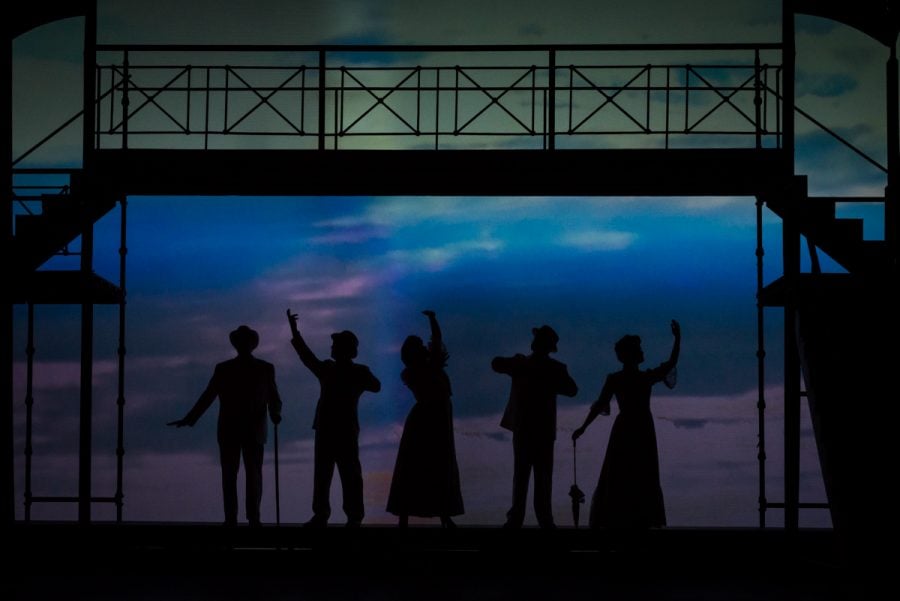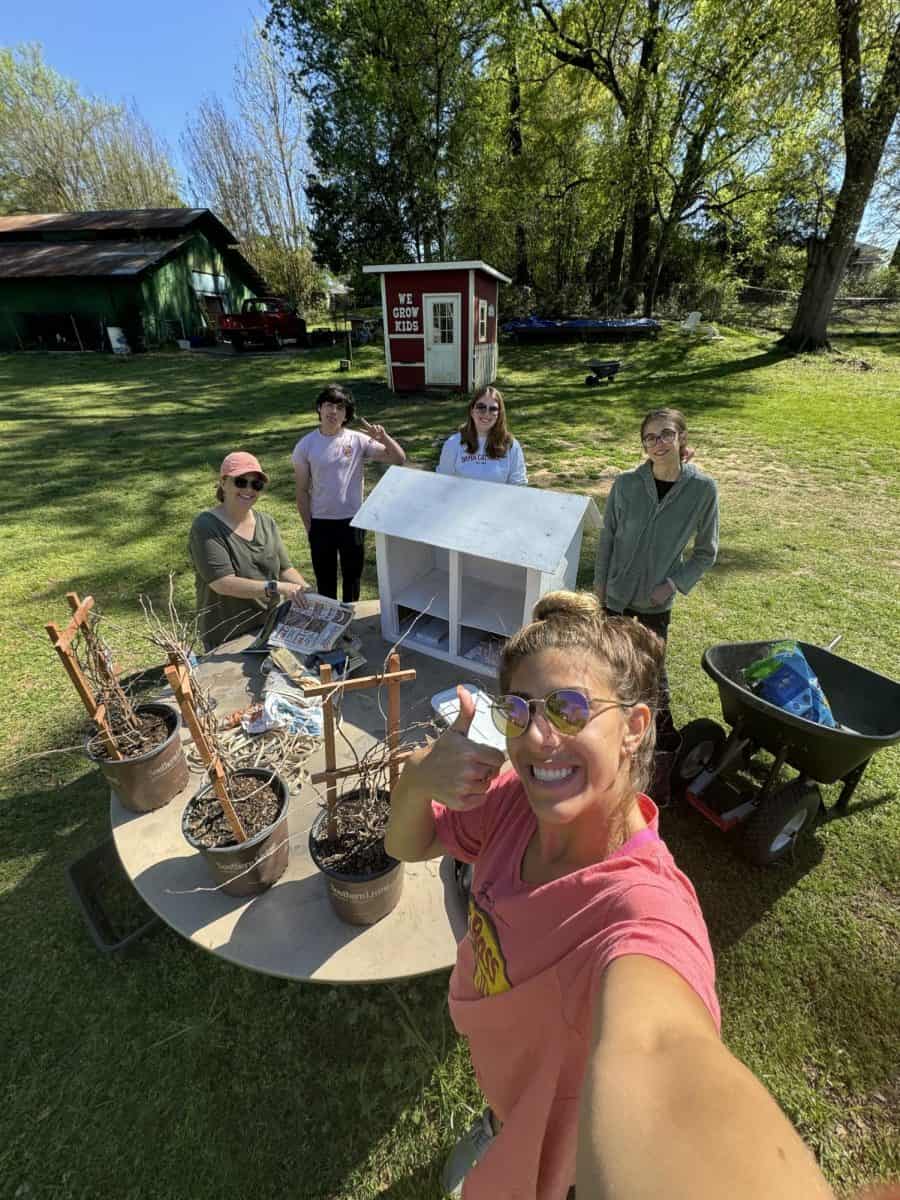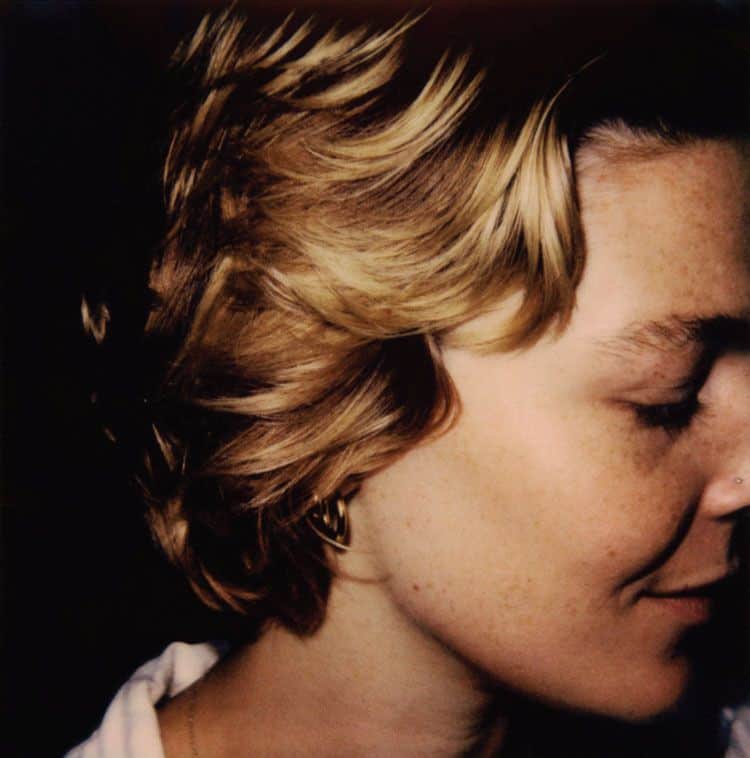The scene of an old Birmingham home stands empty on the stage. A matching Victorian chair and sofa glow a deep purple as they sit facing the audience. Picture frames litter the coffee and side table, but their contents are turned away from the crowd. A small fan rattles on as the finishing touches are put on the stage.
A few dozen in the audience fidget in anticipation for the fourth and final play of the annual Alabama Community Theatre Festival, or ACTFest. “The End of a Line” was presented by Theatre Tuscaloosa at the Bean-Brown Theatre on Nov. 11.
“The End of a Line” takes place in the mid-1980s and follows the encounter of two elderly sisters and a New York City visitor. In this story, the two sisters, Nora and Margaret, have to come to terms with the fact that their deceased nephew was gay and died of AIDS when Mason, the New York City visitor, arrives to deliver the nephew’s ashes.
Adam Miller, who plays the character of Mason and is also the managing director of Theatre Tuscaloosa, was thrilled with how the play turned out, especially since the three actors had less than 10 rehearsals.
“Working with these two pros made me feel very confident that the play would go on without a hitch,” Miller said. “I think this story is so true because it shows the difficult conversations you have in your home and it also has a lot to say of acceptance within your family.”
While this story was told using humor and compassion, tensions develop in the Birmingham home. This one-act play tackles issues such as acceptance of the LGBTQ community, dealing with opposing northern and southern attitudes and determining one’s duty to himself or his family.
However, the main source of tension in the story revolves around the ending of a family line with the death of Nora and Margaret’s nephew.
“What I thought was so cool was that this was the first time we had an audience so it was great to have a response from them,” said Drew Baker, who played the character of Nora. “The audience really plays into the performance even with the more serious moments when you know the audience is listening.”
The audience was indeed listening and laughing along to the “The End of a Line.” In addition to the audience, three adjudicators were also judging the play.
The ACTFest is a two-day community theatre festival and is sponsored by the Alabama Conference of Theatre. Four plays are presented to be reviewed by the three adjudicators, Anthony Haigh, Lynn Nelson and Kristy Meanor.
This year the host company, Theatre Tuscaloosa, and South City Theatre were the plays with the highest marks and won the ACTFest. These two companies will move on to represent Alabama at the Southeastern Theatre Conference in March in Mobile. South City Theatre presented “Doubt: A Parable.”
The plays are judged on criteria such as acting skill, appropriateness of material, pace, impact, and the effectiveness of stage movements and pictures. The plays must also only be 60 minutes long and take no longer than 10 minutes to put up and take down the scene and props.
The other two plays included Actor’s Charitable Theatre’s presentation of “Disaster!” and Auburn Area Community Theatre’s presentation of “Motherhood Out Loud.”
From “The End of a Line,” Adam Miller and Kathy Wilson won acting achievement awards and Drew Baker won best actress.
“These issues of the North versus the South have played out all over the country and you can really see that the colorfulness of the South is the focal point of the play,” said Meanor, one of the adjudicators. “We all must have two eccentric aunts south of the Mason-Dixon Line and Drew and Kathy brought so much more of these personalities to the stage.”







